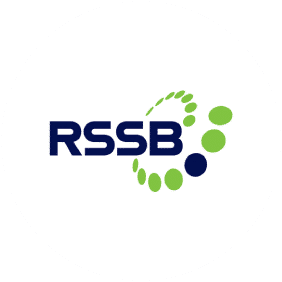Case study
A roadmap for cross-industry change in the rail sector
RSSB
Impact
£ 335k | budget targeting improvements in fatigue management
Over 100 | stakeholders and 60 organisations involved in strategy and vision creation for the rail industry
Impact
£ 335k | budget targeting improvements in fatigue management
Over 100 | stakeholders and 60 organisations involved in strategy and vision creation for the rail industry
The Rail Safety and Standards Board (RSSB) worked with IfM Engage to create a cross-industry roadmap for health and wellbeing. Darryl Hopper, Health and Wellbeing Programme Manager, provides an overview of the project and the impact it has had to date.
The challenge
In 2013, the RSSB recognised that improving health and wellbeing across the rail industry was a priority. Figures were emerging on the financial implications of health and wellbeing, with sickness and absenteeism estimated to cost the rail industry £316 m/yr.
“The costs were significant, but that wasn’t the sole focus. We recognised that health and wellbeing also produce a wide range of less tangible benefits, such as improvements to individuals’ capabilities and morale and to employee relations more broadly. Our role within the industry is to bring together organisations from across the rail sector to collaborate on key topics – and health and wellbeing was now a priority.”
The solution
In the winter of 2013, IfM Engage worked with the RSSB to facilitate three workshops attended by over 100 experts to create a roadmap and visualise the industry’s strategy and vision for health and wellbeing until 2019.
“To progress the project we realised that we needed to consult across the industry to channel ideas, gain consensus and achieve clear direction on the way forwards. Roadmapping was perfect for this and we selected the Institute for Manufacturing as they were the experts in the field.”
A visual output detailing five key strategic themes resulted from the process: industry leadership; clinical knowledge; reporting and monitoring; employee engagement; and behavioural change. Each theme had a clear set of outcomes, action plans and success measures, and has been guiding initiatives to improve health and wellbeing across the industry since 2014.
Tailoring IfM tools and approaches
Darryl highlights that the roadmap has been a core part of effecting change in the industry: “Roadmapping enabled us to bring together views from over 60 organisations to create a plan that is guiding the direction of activity in relation to the key strategic themes. We have progressed significantly in the last four years from a situation where organisations were questioning the activity they should be doing to an acceptance of the importance of health and wellbeing across the rail sector.”
“UK rail organisations are increasing the numbers of health experts and budgets for health initiatives within rail companies. As an example, one large organisation has gone from employing one person in occupational health to employing 18, with similar investment across a number of organisations. The roadmap has been a vital tool in maintaining and communicating progress in this important area.”
Examples of projects being conducted include a fatigue survey and fitness for duty (fatigue) decision aid in the Industry Leadership theme. The projects have a combined authorised budget of £335,000 and aim to impact the way that fatigue is managed across the rail sector.
A Health Economics Group has been established to work across the industry to support the ‘reporting and monitoring’ capability theme of the roadmap. In 2018, the team completed a pilot project with four rail organisations to analyse a collection of health and wellbeing data – variations in the type and quantity of data collection are a barrier to measuring cross-industry performance. The pilot led to the identification of six key data attributes that are being used to drive company engagement in data sharing, enabling benchmarking and a cross-industry data set.
“The roadmap has had the biggest single impact on what we are doing in health and wellbeing and is fundamental to the progress we have made and our plans moving forward.”
The impact
- Created a shared health and wellbeing strategy and vision for the rail industry involving over 60 organisations and 100 stakeholders.
- Increased the importance of health and wellbeing in the sector with notable increases in health experts and budgets for health initiatives to engage with over 70 organisations and enhance collaboration across the search and rescue field.
- Guided spending decisions and budgets including £335k targeting improvements in fatigue management.

“The roadmap has had the biggest single impact on what we are doing in health and wellbeing and is fundamental to the progress we have made and our plans moving forward.”
Darryl Hopper, Health and Wellbeing Programme Manager, RSSB

Darryl Hopper, Health and Wellbeing Programme Manager, RSSB
About RSSB
The Rail Safety and Standards Board (RSSB) supports the rail industry to achieve continuous improvement in the health and safety performance of the railways in Great Britain, which employ over 150,000 people.
RELATED RESOURCES
Roadmapping courses
We run a series of training courses in Cambridge and remotely, throughout the year, to support the transfer of roadmapping and related methods to individuals.
Roadmapping guide
Download the complete guide ‘An Introduction to Strategic and Technology Roadmaps’ where we share expertise and top tips to help you with your own roadmap.
Roadmapping templates
Download and use IfM roadmapping templates
